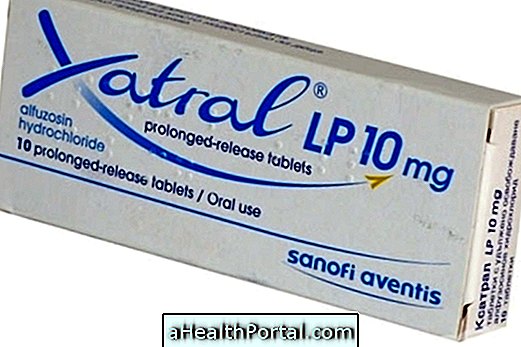To prepare for a marathon, you should run outdoors at least 4 times a week for 70 minutes to 2 hours. However, it is also important to do stretches and weight training to strengthen the muscles, and it is important to be accompanied by a teacher.
The physical preparation for a marathon takes at least 5 months and, in the case of beginners, it takes an average of 1 and a half years, starting with running 5 km, 10 km and 22 km progressively.
In addition, eating foods rich in carbohydrates and proteins, drinking plenty of water, sleeping at least 8 hours a night and gaining confidence and motivation is essential to keep running until the end.
Tips for running the marathon
Some important tips for running a marathon include:
- Go to the doctor to do the blood tests and ergospirometric test, which assesses the level of physical fitness, the functioning of the heart and lungs;
- Wear specific running shoes;
- Use a heart rate meter, known as a chest or wrist frequency meter;
- Opt for outdoor training, avoiding the treadmill;
- Be part of a running group to increase motivation;
- Decrease the pace of training in the last 2 weeks of the race, to protect the body.
In addition to these tips, it is essential to make a physical and mental preparation to withstand the test is necessary:
1. Do physical preparation
To run the marathon, it is recommended that you run regularly for at least 1 year, at least 3 times a week, doing training of at least 5 km. However, if the individual is a beginner, he must first prepare himself physically and only then dedicate himself to specific training for the marathon. Read more at: 5 tips to improve your running performance.
Generally, the training plan for running the marathon must be planned by a trainer and must be done each week, including:
- Run at least 3 times during the week, running between 6 and 13 km;
- Do 1 long-distance training, which can reach 32 km;
- Increase the distance weekly, but not exceeding the 8 km increase per week;
Repeat the number of kilometers traveled every 15 days.
During physical preparation to run a marathon, in addition to running, stretching and muscle strengthening, especially abdominal exercises, should be done. Here's how to do it: 6 exercises to define the abdomen at home.
2. Do mental preparation
To run a marathon, mental preparation is necessary, as the race can take between 2 am and 5 am, with tiredness and fatigue. Therefore, it is important to:
- Know the course of the race in advance, paying attention to references and tracks;
- Watch previous races or films with evidence;
- Talk to athletes who have run a marathon.
The incentive of family and friends is usually also very important to succeed in training and on the day of the race.
3. Rest and rest
In addition to running training, the athlete must rest daily, sleeping at least 8 hours a night. See some tips for sleeping well at: 10 tips for sleeping well.
To recover tiredness and the body to rest it is also important to choose 1 or 2 days a week, not to run and just do some sit-ups or stretches, to recover energy.
4. Maintain a healthy diet
During the months of preparing for a marathon it is essential to eat a healthy and balanced diet, eating every 3 hours of foods rich in carbohydrates and proteins and drinking at least 2.5 L of water per day. It is also important to pay special attention to food before and after training.
In addition, on the day of the race and to endure the race until the end, one should eat 2 hours, 1 hour and 30 minutes before running to keep the sugar levels stable, without having cramps and keeping the heart beat regular. Read more at: What to eat before and after the marathon.

Risks of running a marathon
Running a marathon is a very demanding challenge, which can occur:
- Dehydration due to excessive sweating and, to avoid it, you should drink water and energy drinks during the race;
- Intestinal cramps, due to the low level of sodium, and a little salt should be ingested throughout the test;
- Cramps due to lack of potassium;
- Injuries to the ankles or legs, such as sprains or tendonitis;
- Nausea or vomiting due to intense effort.
To avoid these complications that may arise while the athlete is running, it is essential to drink water and energy drinks like Gold Drink.
If you are overweight and want to run a marathon see how to prepare yourself at: 7 tips for running when you are overweight.
Was this information helpful?
Yes No
Your opinion is important! Write here how we can improve our text:
Any questions? Click here to be answered.
Email in which you want to receive a reply:
Check the confirmation email we sent you.
Your name:
Reason for visit:
--- Choose your reason --- DiseaseLive betterHelp another personGain knowledge
Are you a health professional?
NoMedicalPharmaceuticalsNurseNutritionistBiomedicalPhysiotherapistBeauticianOther























